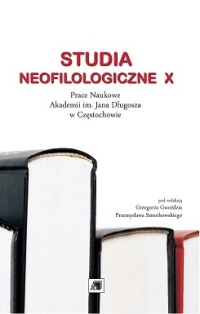Stefan George und Wilhelm Röpke über – und gegen – die Massengesellschaft
Stefan George, Wilhelm Röpke and the Masses
Author(s): Karsten DahlmannsSubject(s): Language and Literature Studies, Studies of Literature, German Literature
Published by: Uniwersytet Jana Długosza w Częstochowie
Summary/Abstract: The German poet Stefan George (1868–1933) is well known for his contempt for the masses. He opposed what he felt to be an all too bourgeoning capitalism and an ever more thoroughly ‘Americanized’ society, leading to an erosion of traditional values and the eclipse of high-brow culture. George’s concern was shared by the economist Wilhelm Röpke (1899–1966), one of the leading thinkers of German liberal conservatism, or ordoliberalism. From a similar diagnosis, George and Röpke arrived at different approaches how to mend the ills of mass society. Whereas George champions charismatic leadership – and thus full-blown anti-liberalism, undermining his own personal (‘negative’) liberty – Röpke recommends strengthening private ownership against state intrusion, e.g. confiscatory taxes. This should lead, after two or three generations, to the blossoming of a natural elite, which might then counteract egalitarian and even ochlocratic tendencies.
Journal: Prace Naukowe Akademii im. Jana Długosza w Częstochowie. Studia Neofilologiczne
- Issue Year: X/2014
- Issue No: 10
- Page Range: 35-52
- Page Count: 18
- Language: German

